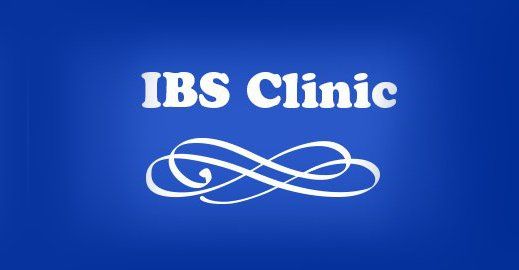
Natural Treatments for Inflammatory Bowel Disease in Adelaide
Since 2007 Naturopath Linda Lowen has been successfully improving digestion function for sufferers of Irritable Bowel Syndrome and Inflammatory Bowel Disease in Adelaide and throughout Australia. Every case is different and each one requires an individual approach to correct the cause of the symptoms. Linda takes the time to thoroughly investigate each case getting to know the patient and creating an individual treatment plan for them.
Linda Lowen is one of several highly skilled and experienced Adelaide Naturopaths. Linda established her practice in the North Eastern suburb of Highbury in 2007; The Highbury Natural Health Centre is only 25 minutes’ drive from the CBD of Adelaide and is also conveniently located to residents of the Adelaide Hills with similar driving time from Lobethal, Gumeracha or Kersbrook.
An increasing number of people now seek health advice from Naturopaths as they become disenchanted with the growing depersonalisation of Super Medical Clinics in Adelaide.
Naturopathic medicine and natural health treatments are based on what an individual requires to restore their health to normal function or as close to it as possible. This requires taking time to listen to the patient, hear their story and understand why things are out of order. Along with nutritional and herbal medicine a prescription will include diet and lifestyle changes as these are usually contributing to the disease process.
Irritable Bowel Syndrome
Irritable Bowel Syndrome (IBS) is not a disease. The term syndrome describes a cluster of symptoms common to most people with any functional digestive disorder. If your GP or specialist has told you that you may have IBS he or she has in fact put you in the "too hard basket".
There is no single cause for IBS there are however many contributing factors that are completely individual to every sufferer. At the IBS Clinic we can identify the cause of your symptoms and begin to restore normal function to your digestive system within a few short weeks. While most sources will tell you that food allergy or intolerance play a very small role in this condition our clinical experience shows food reactivity is implicated in 100% of cases.
The first step in treating IBS is to identify food sensitivities; these are best detected using bio-compatibility testing.
Food Sensitivities are reactions that are not consistent and do not necessarily result in definite specific antibody responses in the blood. They are difficult to pinpoint by traditional blood tests and scratch tests. Reactivity is however mediated by the immune system and results in the release of inflammatory mediators like histamine.
Histamine has only recently been identified as causing more than hay fever and hives. From about 2010 scientists realised that the mast cells (white blood cells that release histamine) were behaving strangely and two new disorders were identified; Mast Cell Activation Disorder (MCAD) and Mastocytosis. Histamine release from food reactions can masquerade as food poisoning, gastroenteritis or parasite infestation; when incorrectly treated with antibiotics the symptoms can become worse.
How do food sensitivities cause IBS symptoms?
Damage to the mucous membrane in the digestive tract is common; it can be caused by stress, infection, antibiotics or poor diet. This damage is sometimes known as "leaky gut" and can allow undigested food components (especially proteins) to get into the bloodstream. The immune system will react by creating inflammation.
The symptoms of irritable bowel syndrome (IBS) are diverse because the inflammation can be anywhere along the length of the digestive tract.
If it is in the stomach expect more symptoms like reflux, bloating, indigestion and gastritis. Inflammation in the small intestine can result in diarrhoea after eating, bloating and flatulence. In the large bowel can result in diarrhoea with mucous and perhaps blood in the stool or constipation with a compacted bowel. Here it can also present as alternating constipation and diarrhoea.
While some foods will initiate this immune response others will aggravate the inflammation. The reaction and pain can be immediate and quite severe. The person often recognises this and may eliminate the offending food from their diet, bringing a measure of relief; however the underlying cause remains leaving them susceptible to the next aggravation.
Trying to identify foods that are actually causing the inflammation is much more difficult as the reaction is mediated by the immune system and may take up to 3 or 4 days.
Identifying reactive foods is easy with Bio-compatibility Testing
Supportive Therapies
Good digestion is essential to the healing process; this includes chewing your food well, good quality stomach acid & digestive enzymes, optimal intestinal & liver function, healthy bacterial growth, motility and tone of the muscular wall of the intestinal tract.
To speed healing we can supplement to improve these factors with:
- Betaine hydrochloride to improve stomach acid
- Digestive enzymes to assist in breakdown of food
- Probiotics to establish healthy bowel flora
- Herbal formulas to support the liver
- Nutritional formulas to heal the inflammation and damage to the intestinal tract.
- Herbal laxatives and bowel tonics to improve the muscular action of the bowel.
Crohn's Disease and Ulcerative Colitis
Whether your symptoms are a mere annoyance or severely debilitating you will find the answers and the treatment you are looking for at the IBS Clinic. Call us today on 08 8395 2836 to arrange a consultation.
Highbury Natural Health Centre & IBS Clinic
ABN: 33 786 816 802
24 Elliston Avenue Highbury SA 5089


